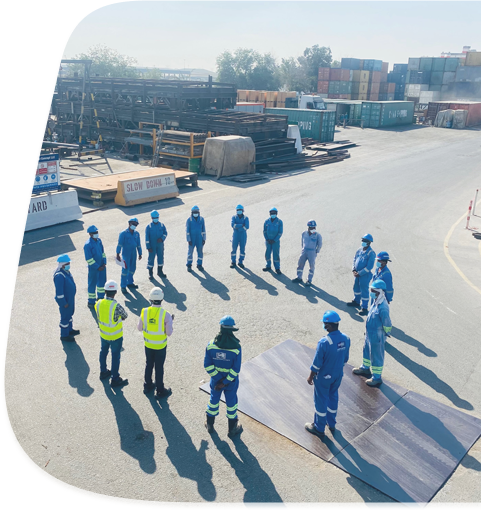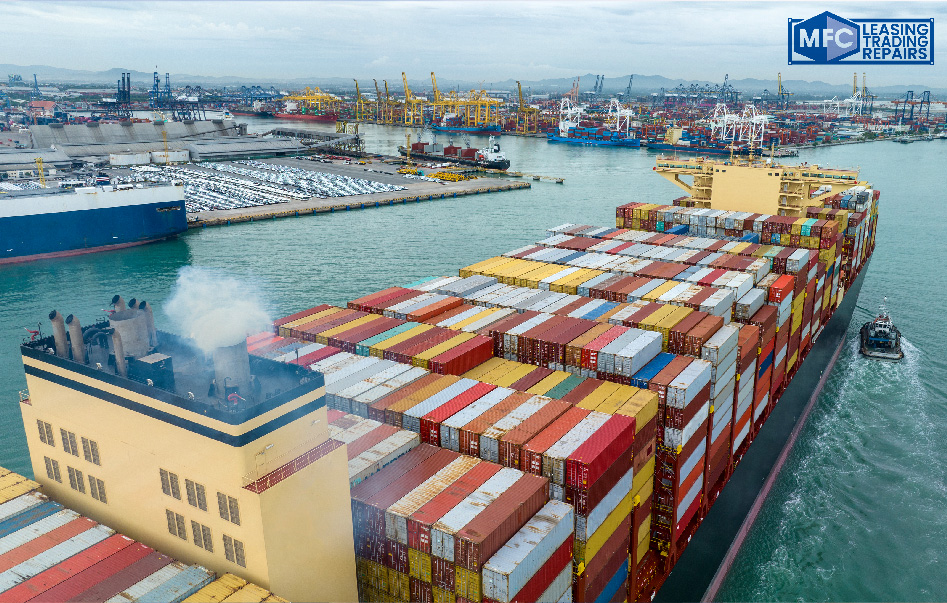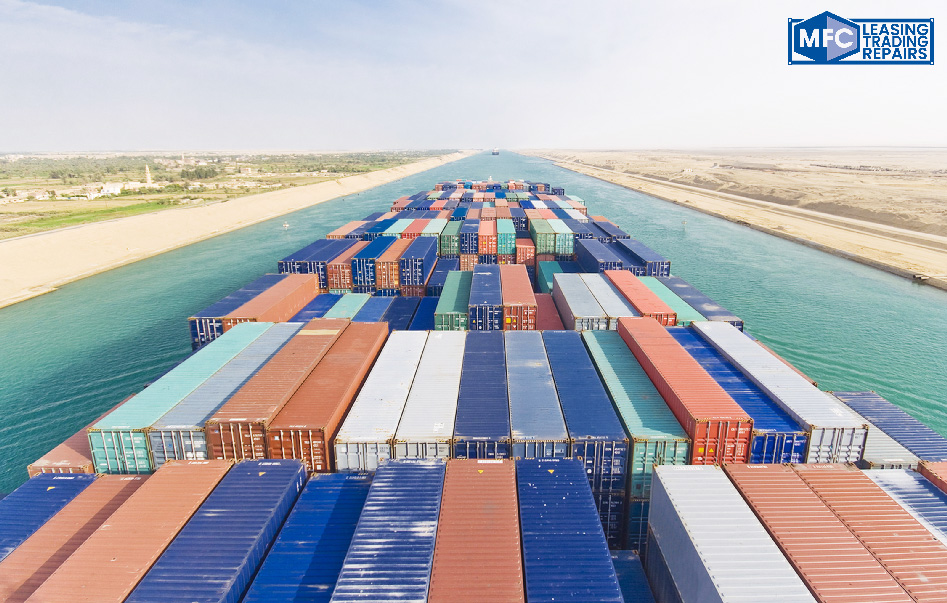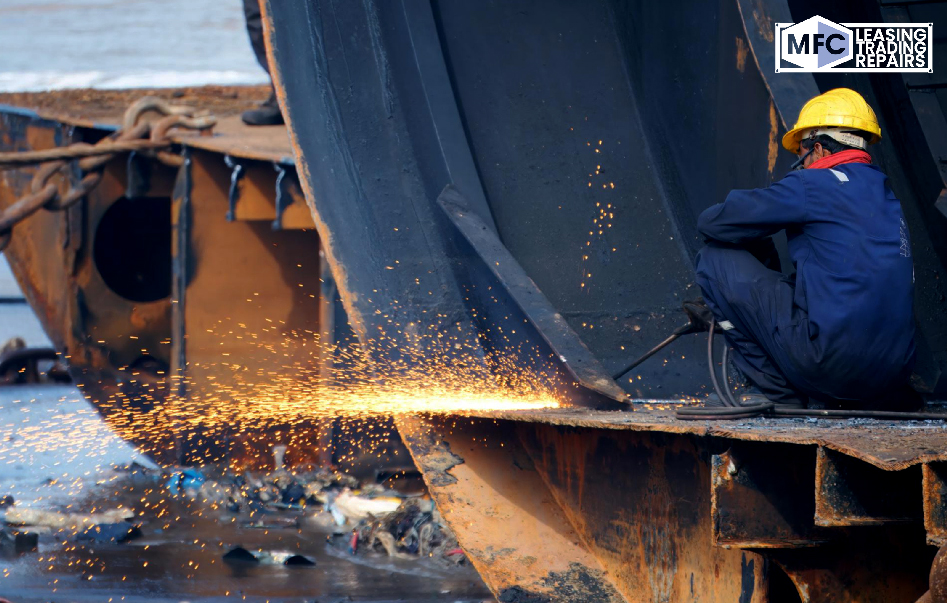-
 containers@mfc.ae
containers@mfc.ae  Jebel Ali Industrial Area, Dubai, UAE
Jebel Ali Industrial Area, Dubai, UAE-
 (+971)48802070
(+971)48802070

Europe's Ports Grapple with 'Uniquely Disruptive' Summer - SupplyBrainChain
08.08.2025
It's been a difficult summer at some of Europe's biggest ports, marked by labor shortages, restructured shipping schedules, construction closures and ongoing shipping delays in the Red Sea.
"Europe’s largest ports are once again straining under the weight of mounting congestion," says Robert Khachatryan, the CEO of freight forwarder Freight Right. "The root causes aren’t new, but the convergence of challenges we’re seeing right now is uniquely disruptive."
In mid-July, the Port of Antwerp-Bruges reported average dwell times between seven and eight days, compared to the typical average of five days. The port blamed several factors, including irregular arrival schedules exacerbated by ships rerouting around the Cape of Good Hope to avoid the Red Sea, as well as the recent reshuffling of container alliances that led to a slew of simultaneous vessel calls and high cargo volumes. The Port of Rotterdam spoke of similar struggles in a July 22 release, which have led to "exceptional congestion in the handling of container flows this year."
On July 27, Houthi rebels vowed to ramp up attacks on commercial ships moving through the Red Sea, creating even more uncertainty for carriers calling European ports. As Khachatryan points out, ships rerouted away from the Red Sea can often arrive at ports in Europe late and out of sequence, which throws off berth availability, yard planning and drayage coordination, and creates a cascade of delays for transshipment cargo.
"Ports that typically operate on tight, just-in-time rhythms are now scrambling to catch up with unpredictable vessel arrivals and backlogged container stacks," he explains.
The Trump administration's on-again/off-again approach to tariffs has further complicated matters, by forcing businesses to pull cargo shipments forward ahead of deadlines that have then evaporated. Because of that, shipments at European ports have been arriving in concatenated waves rather than evenly spaced flows, overwhelming terminals and slowing throughput, Khachatryan says. Despite hopes that the recent framework trade deal agreed to between the U.S. and the European Union could provide some semblance of relief, the Port of Antwerp-Bruges acknowledged on July 28 that the impacts of the agreement are still difficult to predict, especially given that there have been "several different interpretations" of its specific terms.
According to a July 29 operational update from Hyundai Merchant Marine (HMM), ports in Germany, France, Belgium and the Netherlands are also currently facing labor shortages as workers take time off for the summer, all while the PSA Antwerp terminal — which handles three-quarters of the cargo that passes through the Port of Antwerp-Bruges — is operating under what HMM describes as extremely challenging and congested conditions. The result has been a "perfect storm of disruptions" for Europe's ports, says Heidi Benko, the VP of product management and strategy for cloud software provider Infor.
Benko points to infrastructure issues that have become "painfully apparent" at European ports. Ports in Germany, France and Belgium are looking to address those problems with construction projects this summer. Those projects will still lead to delays and limited capacity in the near term, though, with the Port of Hamburg recently starting work to replace three of its gantry cranes, the Port of Havre planning to bring 25 new hybrid straddle carriers into service by the end of the summer, and the Port of Antwerp-Bruges relocating two cranes for refurbishment on August 1.
Some shippers and forwarders have sought to get around delays at major European ports by redirecting cargo to smaller shipping hubs. But, when vessels are redirected away from congested ports like Antwerp-Bruges and Rotterdam, it creates knock-on congestion at smaller European ports that lack the same crane capacity, yard space and inland connectivity, says Khachatryan.
That's had others instead turning to inland barge and rail transport as alternatives, although both modes require complex, coordinated planning among port authorities, rail operators and customs bodies, which remains a work in progress across many corridors, Khachatryan adds. Europe's rail network has also been strained for much of the summer, with Germany fully closing the main rail connection to the Port of Hamburg for 96 hours in early July for a motorway expansion project, and Italy planning to shut down rail service serving the Port of Genoa from August 2 to August 31, for scheduled infrastructure maintenance work.
Meanwhile, climate change impacts have made it difficult to rely on barge traffic, with a heatwave spanning June and July causing lowered water levels in the Rhine and Danube Rivers, which in turn lowered cargo ship transit capacity to 30-50%. For weeks in early July, that prompted ship operators to impose surcharges as high as 100% on cargo owners for vessels that weren't fully loaded. Reuters reported on July 25 that recent rainy weather in Germany solved some of the issues along the Rhine in the country's southern regions, although shallow waters in Northern Germany still have vessels limited to 70% capacity.
Benko warns that, in the months to come, congestion at European ports will linger as a chronic condition rather than a temporary disruption, if there isn't coordinated action from the bloc's stakeholders to find a longer-term solution. Khachatryan expects conditions to remain volatile too, with retailers already advancing peak shipping season orders to hedge against further geopolitical and economic shocks.
That means sustained pressure on European port infrastructure through at least Q4, he predicts.
To read it in SupplyBrainChain: click here




